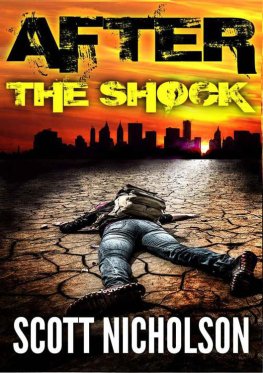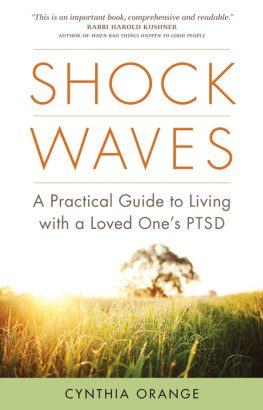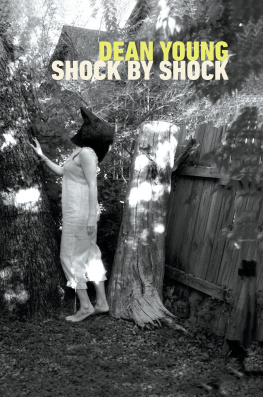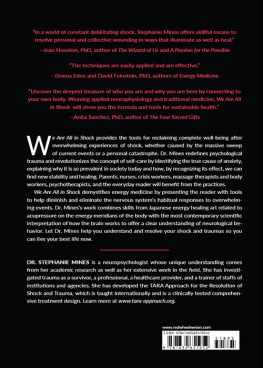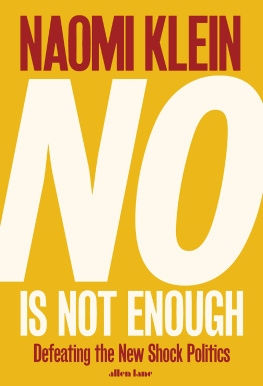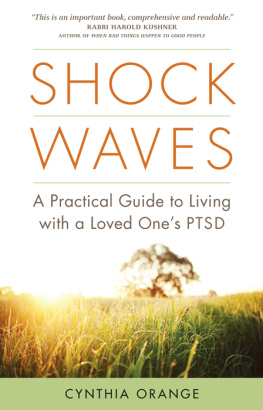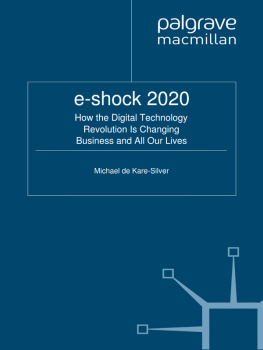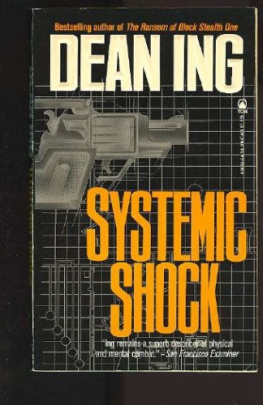

ADVANCE PRAISE FOR
OVERCOMING SHOCK
In Overcoming Shock, Zimberoff and Hartman pool their decades of therapeutic experience to differentiate shock from trauma, trace the many ways shock reorganizes our psychic systems, survey the many kinds of experiences which generate shock, and provide a pragmatic approach to the relief of shock. The authors digest a wealth of physiological and psychological information in clear, easy-to-comprehend prose which serves therapist, victim, and family member well.
James Hollis, PhD, Jungian analyst and author of Hauntings: Dispelling the Ghosts Who Run Our Lives


Copyright 2014 by Diane Zimberoff and David Hartman
All rights reserved. No portion of this book may be reproduced or transmitted in any form whatsoever, including electronic, mechanical or any information storage or retrieval system, except as may be expressly permitted in the 1976 Copyright Act or in writing from the publisher.
Requests for permission should be addressed to:
New Horizon Press
P. O. Box 669
Far Hills, NJ 07931
Diane Zimberoff, LMFT, and David Hartman, LICSW
Overcoming Shock: Healing the Traumatized Mind and Heart
Cover design: Charley Nasta
Interior design: Scribe Inc.
Library of Congress Control Number: 2014930467
ISBN-13 (eBook): 978-0-88282-481-9
New Horizon Press
18 17 16 15 14 1 2 3 4 5

AUTHORS NOTE
T his book is based on the authors research, personal experiences, interviews and real life experiences. In order to protect privacy, names have been changed and identifying characteristics have been altered, except for contributing experts.
For purposes of simplifying usage, the pronouns his/her and s/he are sometimes used interchangeably. The information contained herein is not meant to be a substitute for professional evaluation and therapy with mental health professionals.

ACKNOWLEDGMENTS
W e are indebted to Dr. William Emerson for first introducing us to the concept and dynamics of shock, and for his mentorship regarding the clinical recognition and treatment of shock. We are grateful to Dr. Stephen Porges for his contribution to our understanding of the intricacies of the dual functions of the vagus nerve system. We value the inspired elucidations of Carl Jungs work provided by two giants in the field: Dr. James Hillman and Dr. James Hollis. We acknowledge the foundations for our work provided by pioneers in the field of trauma treatment: Peter Levine, Bessel A. van der Kolk, Christine Courtois, Judith Lewis Herman, Babette Rothschild, Ellert Nijenhuis, Allan Schore, Robert C. Scaer, Donald Kalsched, Michael Eigen and so many others.
We are also grateful to all of our thousands of students who have taught us so much about the concepts presented in this book.

TABLE OF CONTENTS

H ow many times do we hear people say, My spouse (or friend, boss, child, etc.) is so disconnected. I keep trying to connect with him (or her) but I cant seem to do it and I dont know what else to do. This disconnection is a common form of shock. Shock attacks almost all of us and also affects those with whom we may be in relationship, at different times in our lives.
A common example may be evident when we are trying to speak with our children, spouses, bosses or friends. We are telling them something that seems really important to us and we discover that they havent been listening to a word we have said. Books such as Men Are from Mars, Women Are from Venus may explain some of these experiences; however, they do not address the more pervasive issue of people who do not hear us, because they are just not present. They may be in shock.
Another familiar example occurs when people emerge from a car accident: they are dazed, confused, disoriented and numb to physical or emotional pain. Their sense of self is bewildered and their memory is fragmented. Usually we say the person is in shock. The term shock is used very often in our language to mean, I wasnt present for the experience! I was in shock! Hospital workers and EMTs are very familiar with this term in regards to accident and trauma victims and commonly utilize smelling salts to encourage the accident victims to return to their bodies, to consciousness. But we are learning now that shock not only affects accident victims or people with obvious physical trauma; it also silently and profoundly affects humans (and animals) when the stressor is less obvious, such as psychological, emotional and even spiritual distress.
THE EXPERIENCE OF SHOCK
What is shock? It is a physiological response to any distress that seems intolerable and in which a person feels intensely helpless. It is the body saying, I cant deal with this right now; I need a moment to collect myself. In the case of a car accident, the person usually comes back after a brief time. But an individual who is consistently in shock cant take that moment; they must find a way to keep going despite the disruption, to live their lives in shock. This could be a soldier in a combat zone, a family in the aftermath of a natural disaster or terrorist attack or a child in an abusive home. Here the assault is on the persons psyche itself and it abuses their spirit, damages their self-esteem and undermines their courage to come back from the protective numbness of shock. And so these individuals develop ways of living their lives and doing what needs to be done, in spite of the handicap of constantly being in a state of shock.
The younger people are, the more affected they are by traumatic events. This is the case because youngsters have fewer resources to draw on to keep going despite the disruption. A child has only a childs ways of coping. So when the trauma begins early in life, at such a vulnerable time, the abuse to the spirit is devastating. Worse, when it is perpetrated by someone trusted as a caregiver, shock takes over and becomes necessary for survival. This type of shock, the residue of long-ago traumas, may not look as obviously debilitating as a car accident or a school shooting, but it can nonetheless cause the same amount of internal damage to our spirits and send us completely out of our bodies into a place of numbness and dissociation. The number one factor determining how severe a soldiers or tornado victims long-term PTSD will be is whether they suffered trauma earlier in their lives. If the body still needs to collect itself even after all these years, then the person is not as resilient when facing a new traumatic event.
In this book we will discuss the two different responses to physical as well as psychological trauma. They are called
Next page

